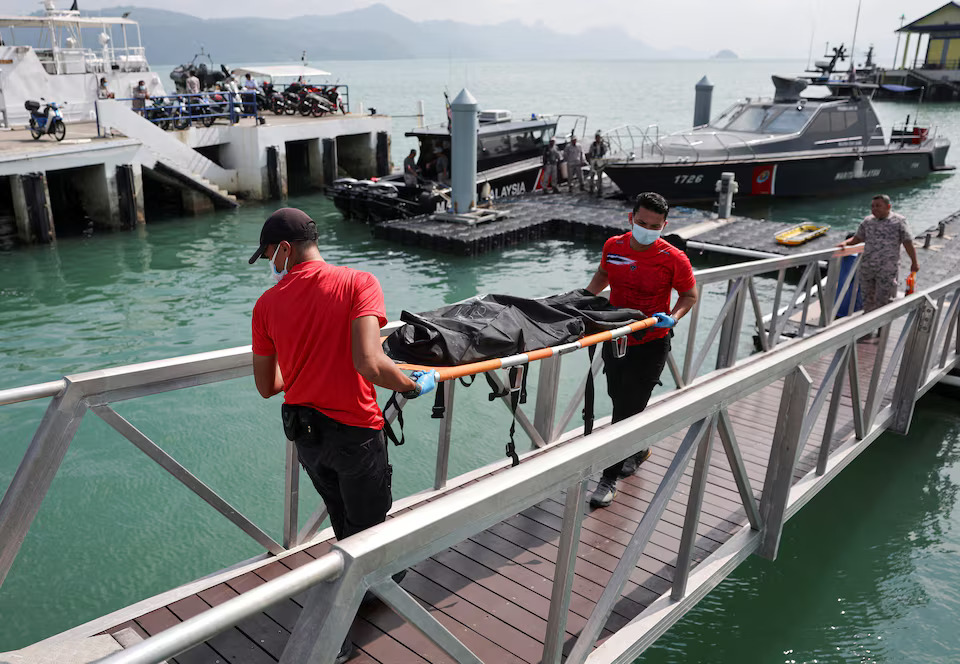Malaysian authorities are continuing a major search operation in the Andaman Sea after a boat carrying Rohingya refugees capsized near Langkawi, leaving at least 11 people dead. The passengers were mostly Rohingya fleeing violence and hardship in Myanmar and overcrowded refugee camps in Bangladesh. The search is taking place across hundreds of square kilometres as families wait anxiously for updates.
Officials say that hundreds of Rohingya had boarded a large vessel about two weeks ago, hoping to reach Malaysia. The group was later divided between two smaller boats. One of the boats, carrying around 70 passengers, sank near the Malaysia–Thailand sea border. So far, 13 survivors have been rescued and taken into custody by police. In neighbouring Thailand, authorities also recovered several bodies from the waters.
The Rohingya are a Muslim minority from Myanmar who have faced decades of discrimination, violence, and mass displacement. Many now live in overcrowded refugee camps in Cox’s Bazar, Bangladesh, where conditions have worsened due to shrinking international aid and growing insecurity. With little hope of safety or work, many attempt dangerous sea journeys in search of better lives in Malaysia.
Authorities say the second boat, believed to be carrying around 230 passengers, has not yet been found. Both Malaysia and Thailand are now using air and sea teams to search for survivors. The Malaysian Maritime Enforcement Agency stated that the operation could continue for up to a week.
A similar journey was taken by 29-year-old Mohammed Ibrahim, who left the refugee camp in Cox’s Bazar without informing his family. His brother, Mohammed Younus, now searches for answers, worried for Ibrahim’s wife and three young children. “If I had known, I would never have allowed him to leave,” he said.
Why do Rohingya risk such dangerous journeys?
Many Rohingya feel they have no future left in the refugee camps.
They believe that staying means a slow life of hunger, fear, and uncertainty, and some think risking the sea is their only hope for survival.
However, even when they reach Malaysia, the situation remains difficult. Malaysia does not officially recognise refugee status, and many Rohingya are detained as undocumented migrants. Authorities confirmed that the survivors found from the sinking boat have been taken into custody for immigration investigations.
As violence continues in Myanmar and life grows more difficult in Bangladesh, many Rohingya say they feel trapped. “People are desperate,” said Naser Khan, a Rohingya refugee living in Cox’s Bazar. “Some think it’s better to die at sea than to die slowly here.”

